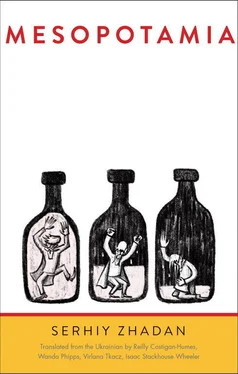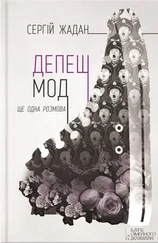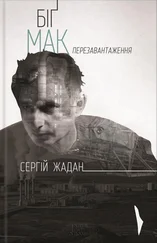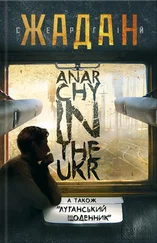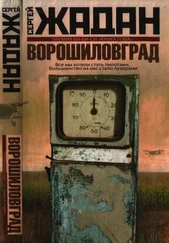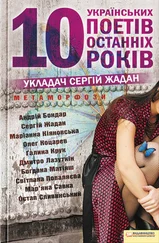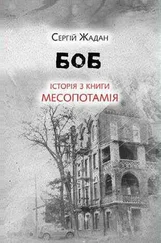Kolia owned two vegetable stands on Horse Lane and two more downtown. Mark’s mom worked at one of them. He tried opening another one at the beginning of the summer, but it went bust, which caused his pancreas to start acting up. Kolia decided to steer clear of hospitals—alcohol was his go-to medicine. Yesterday morning he’d made a long haul out to some wedding—he had a classmate who had died a few years ago, leaving behind a solid legacy and an adult heiress. It was her daughter tying the knot. He came, congratulated the newlyweds, held forth about family obligations, hit on the women, and argued with the men. The pain flared up that night. He got taken to the hospital. He got pissed. He argued with the doctor too. He called his nephew as soon as she left the room.
“Markster,” he said flatly, choosing his words carefully so he wouldn’t sound too helpless. “I can’t really talk, there’s people sleeping here. Listen up, go over to my place, you have a set of keys. Grab my toothbrush, grab my razor, grab my hair dryer, grab my slippers, grab my towels, underwear, some magazines, my hot-water bottle, my cards (I’m talking about my playing cards, you know), a bowl, a spoon, my knife block, a few clean dress shirts and ties, handkerchiefs, my teapot, my thermos, my toaster—”
“Are you moving or something?” Mark interrupted.
“I’m in the hospital,” Kolia answered brusquely.
Mark got scared. Kolia continued, “They brought me in right after the wedding, in the middle of the night. I didn’t even have a change of clothes. Come on, Markster,” he said coldly, putting some pressure on his nephew. “Move! Move! Move!”
His anxiety rubbed off on Mark. Kolia was always getting on his case—he was always riding everyone, he micromanaged everything, spinning a system of family relationships like a sticky spiderweb, taking deep offense whenever anyone would slip out of his tender yet firm embrace, and talking about his clan an awful lot—mostly good things—but he still treated them like debtors.
Kolia resided in a two-story building not far away; the whole first floor belonged to him. The building was buried deep in a nook between large apartment blocks, so you couldn’t even see it from the street. The walls exuded moisture, the balconies were drooping, and the ceiling should have collapsed a long time ago, but it was still intact, supported by invisible braces and beams. Kolia arranged buckets and pots all over his rooms like he was setting cunning traps to catch precious raindrops. Back in the Soviet days, four families lived in the building. Kolia’s family had two rooms on the first floor, next to the Pavlovs—Papa Pavlov, an engineer, Mama Pavlov, an engineer, too, and their busybody drama-queen daughter. Shalva Shotovych, a factory foreman up on Shevchenko Street, a lonesome unmarried jigit of Georgian descent with tons of connections around town, lived right above them. Some old Bolsheviks lived in the other corner of the second floor; Kolia could never tell them apart… or maybe they were just that good at disguising themselves. At the beginning of the nineties, the Pavlovs suddenly turned out to have been Jews all along, and promptly emigrated, selling their apartment to Kolia for peanuts. The Bolsheviks’ ranks thinned over time. Eventually, there was only one old lady left, and she wasn’t feeling too hot, either. She’d sometimes look in the mirror by accident and give herself a real scare. Kolia would sometimes stop by and give her some food. Shalva left, too, but without selling his apartment. Once every two years or so, he’d fly in from Hamburg or some other place where he was working down at the docks, air out the rooms, sit with Kolia in the evenings, tell him about his new life—he wasn’t griping at all, but Kolia would still try to console him. Shalva refused to sell his apartment, for some odd reason. It was as though he was keeping one last corridor open in case he had to retreat, some illusion that all was not lost and everything could still work out in the end. So Kolia was all by himself—his parents had died, his sisters, Zina and Maria, got married, had some kids, and got divorced, but they were in no hurry to return to the nest. Between raising Mark and working for her brother, Maria had her hands full. Zina lived by the sea and hardly ever visited. Mark’s mom got married, but it didn’t work out. His aunt Zina got married, but that didn’t work out either. He viewed this as some sort of family curse. Kolia hid stacks of cash in his fridge, kept vegetables he’d bought from wholesalers in the hallway, and slept blissfully sprawled out on a sofa. He didn’t have much luck with the ladies, and they didn’t have much luck with him, either. Kolia had olive skin, squinty eyes, a heavy, mistrustful gaze, a dull smile, yellow teeth like an old stray dog, weak lungs, and a heart swimming in fat. He made himself breakfast every morning. No wonder his pancreas had started acting up.
Mark dug out his keys, opened the door, walked down the hallway, and entered Kolia’s dusty domain, where herbs lay in a great heap on the floor. The air had the overwhelming smell of medicine and the muffled smell of burned food. There was a fancy new chandelier hanging over the table in the first room; only one of the bulbs worked, though. There were two washing machines in the corner; neither of them worked. There were wardrobes full of new, brand-name clothing and old children’s books. The rugs were densely covered with potato chips. Then Mark stumbled over a loose TV cable and an unplugged extension cord with a toaster at one end. Kolia was clearly all about the latest technology, but he had some problems getting it hooked up. The curtains had been drawn, and the rooms were swaddled in murk. The air held so many smells and so much stagnant warmth within itself that Mark couldn’t take it anymore and had to open the window for some relief. He took out his bag and started rooting around the apartment, gathering up Kolia’s things: the thermos, towels, and underwear. Then he remembered about the toothbrush. The bathroom was on the other side of the building. He went through the room with a couch and two televisions (one had picture and the other had sound), past the closet where Kolia kept brooms and his hunting shotgun, into a spacious, messy kitchen; in the corner, partitioned off by a colorful Chinese screen, was a big, fancy tub resting on four bricks. He loved Kolia’s kitchen—you could always find something interesting there, either in the fridge, which would shut off on its own sometimes, or in his grandma’s old desk, where Kolia kept sweets and sleeping pills. There were suitcases packed with magazines and cardboard boxes stuffed with Kolia’s socks and supermarket bags. A heavy piece of velvet was draped over the window like a flag, which made the surrounding disorder mysterious, so Mark stepped into the kitchen full of the foretaste of mysteries and riddles—with good reason, as it turned out. A young stranger stood in the shower, her back turned to Mark, fiddling with the hot-water knob. The screen had been pulled slightly to the side; the stranger apparently hadn’t been expecting any visitors. Mark froze, took a half-step back through the doorway, and then peeked in again. Light was streaming through holes in the velvet, yanking colors and shades out of the twilight. The radio on top of the fridge was singing with melodramatic sorrow; two hoarse women’s voices were telling some sob story about a downtrodden girl from a small port town who had learned too early about heartache and disappointment. The stranger didn’t even hear that somebody had walked into the room—she stood on her tiptoes, reaching for the nickel-plated Italian showerhead that Kolia had attached with blue adhesive tape, swaying slightly and listening to the sad women as though the song was about her own life.
Читать дальше
